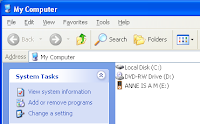Hello,
I ran into your review site tonight. Very impressive and insightful reviews.
We have an ongoing sociology podcast that we would love to get your feedback sometime. We've been going for about a year and a half and have close to 50 episodes. We discuss recent research done by sociologists and social scientists more broadly and interview researchers who we think are doing interesting work. Our goal is to make sociology accessible and interesting for the broader public.
We're located in the society pages domain and the podcast is called office hours
http://thesocietypages.org/officehours/
=======
Hi Anne,
My name is Liam O'Brien and just thought I'd touch base given your interest in all things podcast - I'm over radio documentaries in RTE - Ireland's public service broadcaster - we podcast and broadcast new radio docs every week. All our documentaries are radio stories about real life.
I'm just pointing you in our direction with a view to perhaps being featured within your blogspot?
We podcast at least twice weekly and have a huge variety available of docs available - we currently have over 450 radio documentaries for podcast/listen online and all with no charge - all our material is made available for free as we're a public service broadcaster.
All podcasts are available from our homepage http://www.rte.ie/doconone , through our itunes store or via our own dedicated iphone app (which is also free). We podcast 1 new full length doc each week (c. 38mins) and 1 new short documentary (c. 11mins) from our sister series 'The Curious Ear'. In addition, we regularly upload extra podcasts as we trawl through the best of our docs from the archives (we're going since 1987)
We've won countless national and international awards over the years (27 in the last 2 yrs alone), the biggest of which was winning the Prix Europa last year - the biggest radio documentary competition in the world. We were also awarded a Gold Medal at this year's Irish Digital Media Awards for 'Best in Podcasting'.
I know awards only really matter in the 'corporate' world and mean little to the listener/user - it's just to give you an idea of our standards etc
So, if you think you might be interested in featuring us in anyway and/or if you've some questions, please don't hesitate to ask and I'll get back to you asap. All our relevant links are included below.
All the best and thanks a million,
Liam
Liam O'Brien,
Series Producer - Documentary on One,
RTÉ Radio 1,
http://www.rte.ie/doconone
========
DysfunctionalParrot said...
I guess I'll take a stab at self promotion. In all fairness, I'm somewhat of an upstart production and not really well known...yet!
The podcast covers news,politics,religion and comes from the angle of a cynical, pragmatic Christian worldview.
http://dysfunctionalparrot.com/dysfunctional-parrot-podcast/
I'm just looking for some honest feedback.
=========
Hello Anne
My name is Devyn, and i would like to submit an amazing local podcast, that i love, for review.
It is a cast made of a table of "Misfits" all attending UT dallas in different degree programs.
They discuss topics from the news, to life, all the way to answering "letters," and giving advice to listeners.
Each of them have a different view on almost everything, and it helps that they all are funny.
It is a interesting, hilarious, great podcast that i think many would enjoy.
http://www.secretlytimid.com/
i hope you enjoy. I sure do
======
Greetings,
I'd like to point your attention towards our podcast, The Chronic Rift, a weekly podcast on news, reviews, interviews, and discussion of pop culture. The show is based on our popular New York public access show of the nineties. Our show is broken down into three types of programs, In Review, Spotlight, and Roundtable with a heavy emphasis on science fiction, fantasy, horror, and comic art. The In Review episode (once a month) features reviews and discussion of various aspects of pop culture. Our Spotlight episodes (twice a month) features interviews and special events (such as Roundtable Awards and Match Game episodes). Our Roundtable episode (once a month) takes one aspect of pop culture where we discuss it with a fan and a professional. We recently began an after show program called The Post-Mortem After Party in which our hosts and any guests continue their conversations and quite often take up new topics. You can only download these episodes (two so far) on the home page.
We are quickly approaching our 100th episode and would love to hear your thoughts on the program.
You can find the iTunes feed here - http://itunes.apple.com/us/podcast/the-chronic-rift/id335527588
Or you can access episodes on our Mevio site - http://chronicrift.mevio.com.
You can learn more about the show by visiting our home page - http://www.chronicrift.com.
My thanks, in advance, for your time and consideration on the matter.
--
John S. Drew

==========
Hi Anne!
I like very much a radio program which is also available as a podcast. It is a program called "
La Venganza Será Terrible" by Argentinian Alejandro Dolina. He has normally 3 segments. The one I like tells stories about history, in a humorous tone, ranging from Voltaire to BlackBeard and what not. I think the content is amazing, someone should take the trouble to translate it. (
feed)
Sergio Fogel
==========
Hey Anne;
My name is Laura May and I'm from Craigsville in Cyberspace.
I have a very sexy, funny, dirty podcast and I would like to invite you to listen to it.
I was a featured podcaster on iTunes for a month and created a bit of a buzz there.
You can find my podcast on my website or - http://itunes.apple.com/ca/podcast/laura-may-diaries/id367263258
***Please listen to the introduction then SKIP right to episode #9-15***
Hope you'll enjoy it.
Have an Awesome Weekend!
http://lauramaydiaries.com
 Witness (BBC)
Witness (BBC) 























